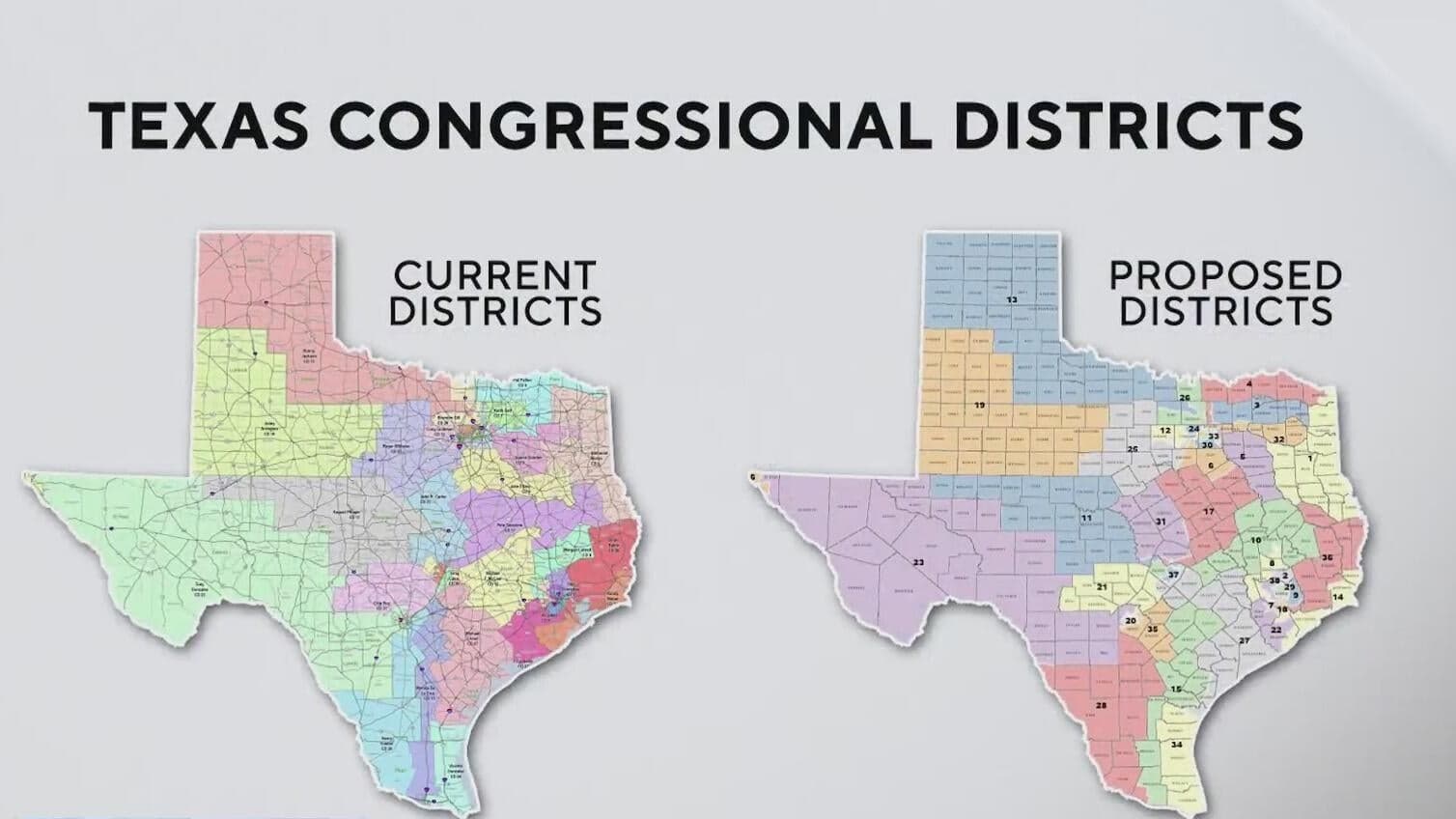Federal Judges Block Texas Republican Map, Find Race Based Gerrymander
A three judge federal panel on November 18 blocked Texas from using a newly drawn congressional map, concluding that it appeared to constitute an illegal race based gerrymander. The decision pauses a Republican effort to reshape U.S. House districts ahead of the 2026 midterm elections, raising political stakes and setting up an almost certain appeal that could reach the Supreme Court.

A federal panel of three judges on Tuesday barred Texas from implementing a congressional map drafted by Republican lawmakers, finding by a 2 to 1 vote that the map appeared to amount to an illegal race based gerrymander. The ruling, issued on November 18, came as Texas Republicans sought to redraw districts in hopes of adding seats favorable to their party for the 2026 midterm elections.
The injunction prevents the state from using the contested map while litigation proceeds, preserving the status quo as courts consider the merits of the challenge. The decision was characterized by judges as a close legal determination, with the dissenting jurist signaling the contested nature of the underlying constitutional and statutory issues.
The dispute centers on whether race was improperly used as a predominant factor in drawing district lines, an action that federal courts have long treated as constitutionally suspect. Race based gerrymanders trigger heightened judicial scrutiny because they can dilute minority voting power or entrench partisan advantage under the guise of racial considerations. The panel’s finding that the map appeared to cross that line sets the case on a path toward higher courts.
Texas has been at the center of redistricting fights for decades, reflecting its rapid population growth and shifting demographics. Republican majorities in the Texas legislature framed the new plan as an effort to reflect population changes and to secure competitive advantage. Opponents argued that the map undermined minority representation and violated federal law. The Fox News report on the ruling, filed by national politics reporter Breanne Deppisch for Fox News Digital, described the order as a substantial setback for Republican strategists in Austin.
The timing of the decision magnifies its political importance. Candidates, parties, and national donors are already planning ahead for 2026, and the shape of congressional districts will influence recruitment, fundraising and campaign strategy. With an injunction in place, uncertainty will complicate those preparations and could force the state legislature to return to the drawing board if courts ultimately find the map unlawful.
Legal appeals are expected. A 2 to 1 panel ruling in a federal district or appellate court often prompts an appeal to the Circuit Court of Appeals and potentially to the Supreme Court, especially in a politically charged matter that has national implications. A final resolution could hinge on how the high court interprets the constitutional limits on race conscious redistricting and the precedents that govern vote dilution claims.
Beyond immediate electoral consequences, the case underscores broader tensions in American democracy over representation, race and the role of the judiciary. Observers both inside the United States and abroad watch redistricting conflicts as indicators of how democratic systems balance majority rule with protections for minority political rights. For Texas, the next procedural steps in court will determine whether legislators can proceed with their plan or must craft a new map that withstands judicial scrutiny ahead of the 2026 elections.

